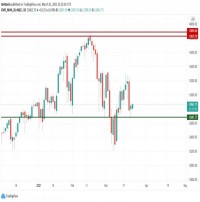|
Opalesque Industry Update - U.S. insurance companies increased their private equity holdings by nearly 10% in 2019 to $81.3 billion, marking the fourth straight year of increases. Private equity remains attractive to insurers looking to diversify their investment portfolios or increase returns in the low interest rate environment, according to a new AM Best special report. The Best's Special Report, titled, "Private Equity Holdings Continue to Climb," notes that companies that made private equity investments and were looking for an exit such as an IPO or sale, may need to defer doing so amid the COVID-19 pandemic environment, as they may not be able to get their desired price. Nevertheless, the lower interest rate environment and an abundance of cash-strapped businesses with sound economic models create opportunities for private equity capital. As insurers have pulled back from hedge fund investments (see related special report), many have shifted allocations to private equity to maintain exposure to alternative assets and achieve better returns, compared with the public markets. U.S. life/annuity (L/A) insurers have driven the majority of the growth in private equity holdings. The L/A segment accounts for three-quarters of the insurance industry's private equity book adjusted/carrying value (BACV). However, they have the smallest allocation to invested assets on average-1.5% compared with 2.3% for property/casualty insurers and 7.1% for health insurers, although the health allocation is not meaningful due to a small population and one outsized exposure. The small allocations as a percentage of invested assets point to generally more conservative investment strategies and lower levels of risk tolerance. Insurers are also wary of the effects on capital models, as investing in limited partnerships or other common equity vehicles face higher capital charges than rated debt or preferred equity. Private equity sponsors have started developing products and structures to help ease the capital strain on these investments. Most insurers prefer experienced money managers with a solid track record. The insurance industry as a whole has the greatest exposure to leveraged buyout funds, at approximately 60% of overall holdings. Venture capital accounts for another 25%, and mezzanine financing composes the remainder. Additionally, the insurance industry has more than $46 billion in commitments for additional investment, more than $36 billion of which are by L/A insurers. AM Best reviews company investment guidelines to gauge whether current investment allocations are within the risk tolerance parameters set by a company. Investment management capabilities, performance and the resulting impact on capital also are evaluated, and companies rated by AM Best should be able to explain the risks they take with their alternative asset investment portfolio, particularly as many companies have commitments for additional private equity investments. |
Industry Updates
US insurers' private equity holdings continue to climb
Tuesday, June 30, 2020
|
|





 RSS
RSS







